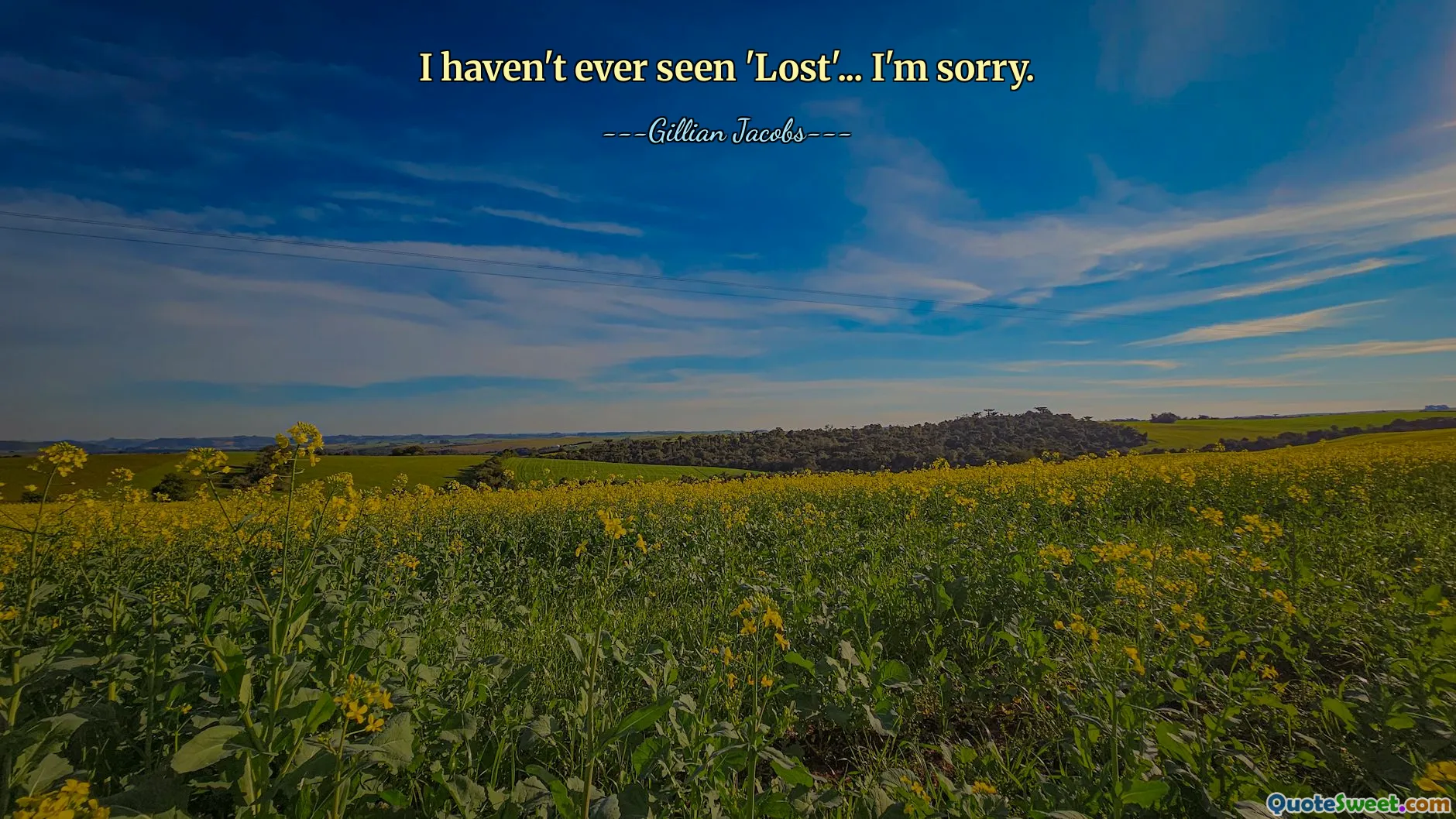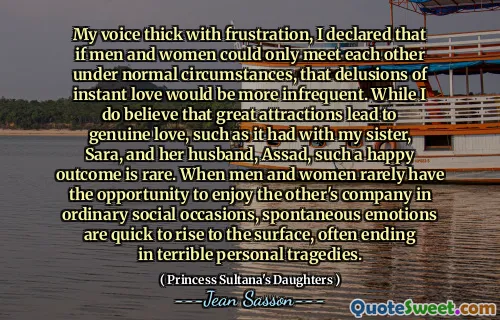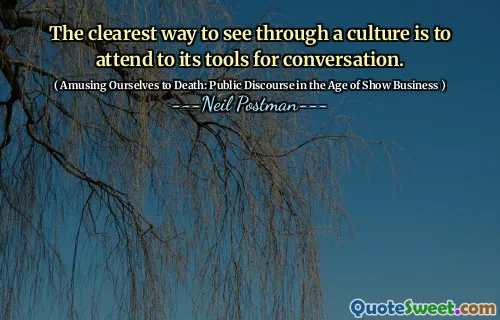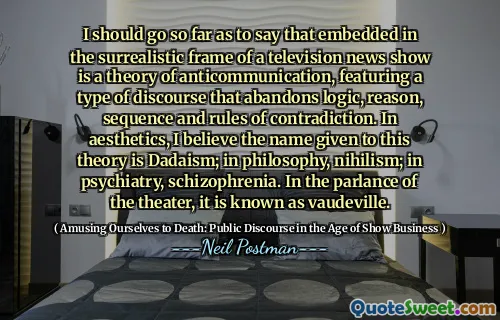
I haven't ever seen 'Lost'... I'm sorry.
This quote highlights a common phenomenon in modern culture: the sense of missed experiences and the feeling of guilt or regret that can accompany them. It reflects how certain popular TV shows, movies, or cultural phenomena become so ingrained in the collective consciousness that not experiencing them can create a subtle sense of alienation or inadequacy. Watching 'Lost' was a significant cultural event for many during its original run, captivating audiences with its complex narrative and mysterious themes. Choosing not to watch such a show might stem from personal taste, time constraints, or simply being unaware initially.
However, what stands out here is the apology, which indicates a recognition that missing out on something valued by many can feel like a deficiency or social oversight. It speaks to the power of shared experiences in forming social bonds—discussions, references, and inside jokes woven through popular media help individuals feel part of a community. Denying oneself these experiences might lead to feelings of being left out or disconnected.
Furthermore, this quote underscores how media consumption patterns influence identity and social integration. In today's digital age, where everything is interconnected, the inability to participate in certain cultural touchstones can sometimes lead to a sense of exclusion. Yet, it is also a reminder that cultural participation is a personal choice; not everyone finds joy or interest in the same content. Ultimately, understanding one's own preferences and respecting differences are vital, and there is no obligation to partake in popular culture simply because others do.
This quote can thus serve as an invitation for self-awareness: acknowledging what we have and haven't experienced and understanding the reasons behind our choices. It also prompts reflection on the importance of balance—participating in cultural moments while maintaining authenticity about personal interests and boundaries.










